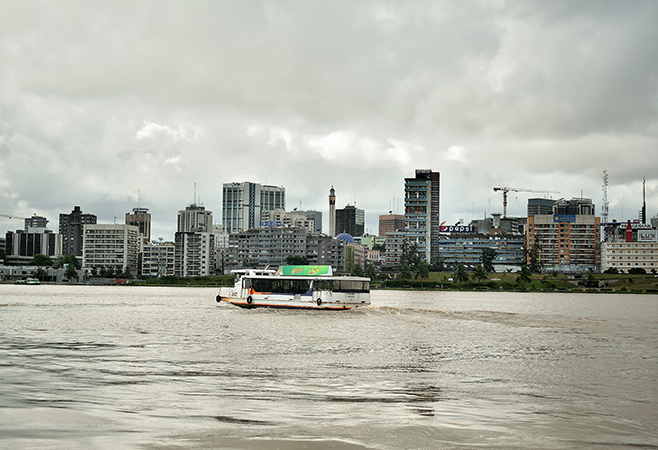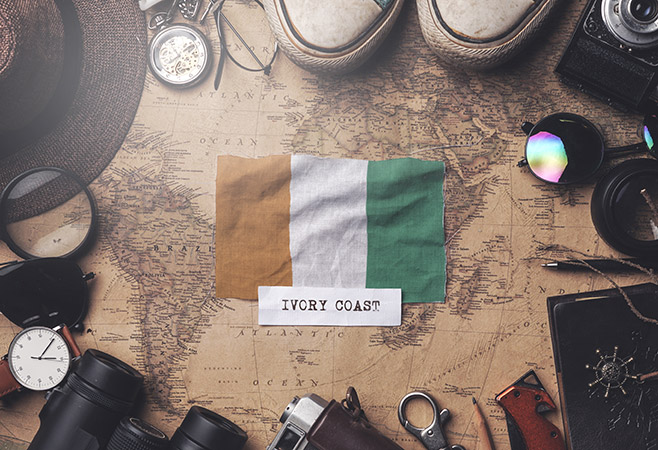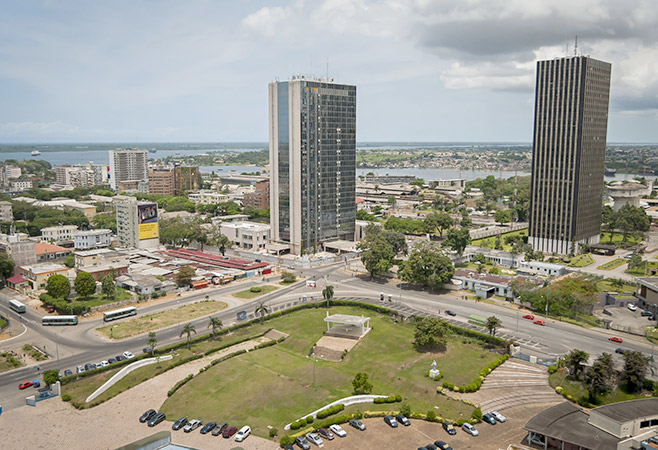Ivory Coast Visa and Travel Advisory Updates for Tourists
Planning a trip to Côte d'Ivoire promises an adventure filled with vibrant cities, stunning national parks, and legendary beaches. As with any international travel, staying informed about the latest safety advisories and entry requirements is the first and most crucial step in your journey.
This guide provides a consolidated overview of the current travel advisory status and the streamlined visa process for the Ivory Coast, ensuring you can plan with confidence.
 Updated Ivory Coast visa policy makes travel smoother for international tourists
Updated Ivory Coast visa policy makes travel smoother for international tourists
Is the Ivory Coast safe to travel to now?
While the general advisory suggests a high degree of caution, it's generally considered safe to travel to major cities like Abidjan and Yamoussoukro if standard security precautions are taken. However, specific regions are deemed highly dangerous:
Avoid All Travel (Do Not Travel To)
Areas within 40km-50km of the borders with Mali and Burkina Faso, including northern areas of the Zanzan and Savanes provinces and the Comoé National Park, are affected due to the high risk of terrorism and kidnapping by armed groups from the Sahel region.
Avoid All but Essential Travel To
Areas within 20km of the border with Liberia are affected due to the presence of armed militia groups and the risk of inter-communal violence.
 Don't miss safe travel tips and visa guidance for visiting Côte d’Ivoire
Don't miss safe travel tips and visa guidance for visiting Côte d’Ivoire
Visa & Entry Requirements: What’s New & What Remains
Shift to the eVisa System
Ivory Coast has streamlined many visa requirements through an electronic visa (eVisa) system. The move is designed to reduce paperwork and make access smoother.
Many nationalities can apply online for a tourist or short-term visa.
The eVisa approval is often emailed and must be presented (digital or print) at the point of entry.
It’s recommended to apply at least 72 hours before travel, although some guides suggest allowing additional buffer time.
Visa Exemptions & Nationals
Citizens of 23–24 countries currently benefit from visa-free entry for certain periods. Many of those are ECOWAS member states.
The exemptions often allow stays up to 90 days, but the exact terms depend on bilateral agreements.
Key Visa Conditions & Documents
Passports must generally be valid for at least 6 months from the entry date. Applicants typically must present:
- Proof of onward or return flight
- Evidence of accommodation in the Ivory Coast
- A Yellow Fever vaccination certificate is often required.
Visa processing fees and durations vary. For example, a single-entry tourist eVisa is commonly valid for stays of up to 30 days.
Special Notes & Transit
eVisa holders should generally enter via Port-Bouêt Airport (Abidjan). Some sources note that alternative ports of entry may complicate arrival for eVisa holders.
Transit visas may be required for travelers passing through Côte d’Ivoire on the way to other destinations.
 Ensuring a smooth journey with the latest visa requirements and travel alerts
Ensuring a smooth journey with the latest visa requirements and travel alerts
Ivory Coast Travel Advisory - Practical Advice Before You Go
- Check visa rules early: Don’t wait until the last minute. Cease depending solely on third-party sources; verify via official government or embassy portals.
- Plan your entry point: If using eVisa, confirm that your intended airport or border crossing is approved for eVisa holders.
- Vaccinations & health: Yellow Fever vaccination is highly recommended or mandated. Also, stay current on routine vaccinations.
- Stay informed: Monitor your home country’s travel advisories and local news in Côte d’Ivoire.
- Register with the embassy: This helps consular services contact you in an emergency.
- Have contingencies: Carry extra identification, backup funds, and an emergency communication plan (local SIM, power bank).
- Avoid risky zones: Especially border areas with Mali, Burkina Faso, and Liberia—unless you have specific, well-guided plans and security support.
- Respect local regulations: Check curfews, travel restrictions, and COVID/health entry rules (if in force).
- Insurance: Ensure you have travel and medical insurance covering theft, evacuation, and health emergencies.
Conclusion
Côte d'Ivoire is open for tourism and has implemented a user-friendly e-visa system to facilitate travel. By understanding the travel advisory landscape—staying vigilant in cities and avoiding the northern border regions—and completing your e-visa application in advance, you lay the groundwork for a safe and unforgettable Ivorian adventure.
Related Articles
- Traveling to Côte d’Ivoire from France: Visa & Entry Checklist
- Best Cities in Africa to Visit: Top Travel Destinations
- Best Time to Visit Africa: A Complete Guide for Every Traveler
- Ivory Coast Visa Fingerprinting Process Explained
- Ivory Coast Birdwatching: Where Are Best Spots & Species
- Top Kitesurfing Spots in Ivory Coast: Where and When
- Ivory Coast Desserts: Must-Try Dishes for Travelers
- Top African Airports Every Traveler Should Know
- Visa-Free Travel to the Ivory Coast - Things to Know
HOW CAN WE HELP?
APPLY WITH CONFIDENCE
|











